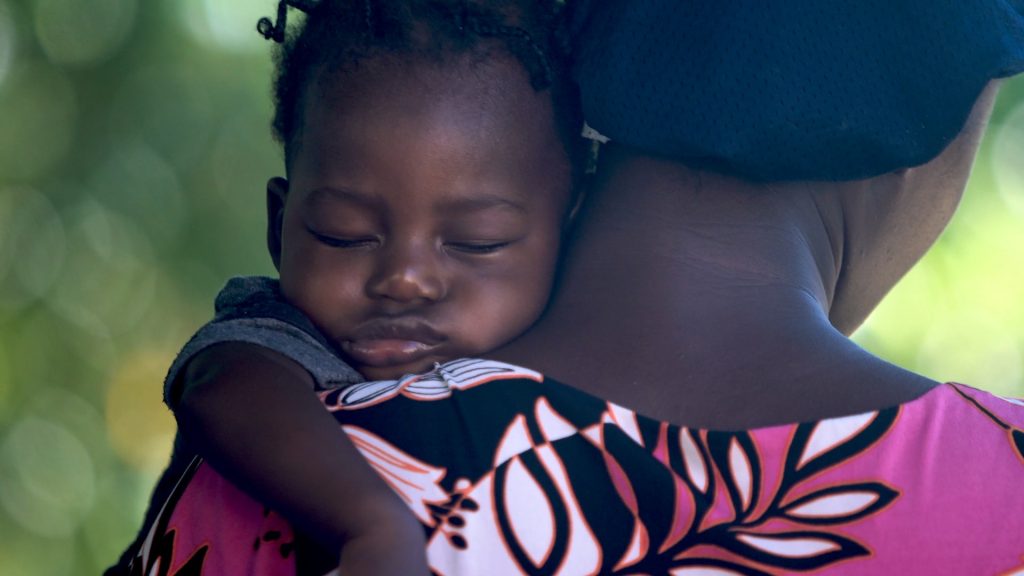Getting United Behind Maternal Health
Expectant moms are part of a growing crisis in the United States. According to the World Health Organization, maternal mortality among American women has increased 75% in the last 20 years. Let that sink in for a minute. In Tarrant County, the maternal death rate exceeds that of the state average – and Texas is one of the top 10 states in the nation for maternal mortality. It’s even worse in zip code 76104, where Black moms have the second highest maternal mortality rate in Texas.

If you list all the hospitals in Fort Worth, you will find the greatest concentration of them in 76104. John Peter Smith (JPS) Hospital, Texas Health Harris Methodist, Cook Children’s, Medical City Fort Worth and Baylor, Scott & White All Saints all reside in this medical district. So why are the statistics so discouraging?
 We know there is a disparity in access to affordable healthcare, especially in low-income communities and communities of color. But it goes further than that. According to the December 2022 Texas Maternal Mortality and Morbidity Biennial Report, 12% of pregnancy-related deaths were attributable to discrimination. Furthermore, the Report determined there was at least some chance for preventability in 90% of the cases reviewed. This is where United Way of Tarrant County’s Community Doulas initiative comes in to address the maternal health crisis.
We know there is a disparity in access to affordable healthcare, especially in low-income communities and communities of color. But it goes further than that. According to the December 2022 Texas Maternal Mortality and Morbidity Biennial Report, 12% of pregnancy-related deaths were attributable to discrimination. Furthermore, the Report determined there was at least some chance for preventability in 90% of the cases reviewed. This is where United Way of Tarrant County’s Community Doulas initiative comes in to address the maternal health crisis.
Thanks to American Rescue Plan Act (ARPA) funding administered by Tarrant County, UWTC recently launched a maternal health-focused program to train 120 community-based doulas in 76104 and work with JPS hospital staff to become doulas as well.
As trained professionals, doulas provide support to mothers throughout their birth experience: prenatal, during childbirth and postpartum.
According to Community Doula Yenny James, a UWTC initiative partner and founder of Paradigm Doulas, “A lot of people confuse doulas with midwives and obstetricians. What we do is educate expectant moms throughout pregnancy. We make sure that they’re aware of changes in their bodies or things that may be an emergency… And then we’re there with them during their birth. As postpartum doulas, we are with them at home. We nourish them, care for them, cook for them, clean and help them heal.”
 Essentially, doulas help bridge the trust divide that may exist between patients and healthcare providers. This is most successful when you train people to serve in the neighborhoods where they live.
Essentially, doulas help bridge the trust divide that may exist between patients and healthcare providers. This is most successful when you train people to serve in the neighborhoods where they live.
Kate McCollum, another expert working on the initiative who serves as senior director of reproductive and maternal health with the Child Poverty Action Lab, further explains: “A community-based doula model intentionally trains doulas that understand and come from the communities they serve. Doulas do much in terms of providing consistent bedside support and advocacy for a patient that goes a really long way in healthcare settings. The kind of culturally competent care they can provide can be a powerful tool in fighting the racial bias that we know can exist within our healthcare settings.”
This maternal health initiative falls into a priority focus area for UWTC: community health. Based on the success of the community doula program, UWTC intends to expand the initiative across Tarrant County into other areas with high maternal mortality rates.
The organization invites the Tarrant County community to join in its campaign to Get United to build a better Tarrant County where everyone thrives. The nonprofit leader directly impacts North Texas by addressing critical needs in four significant categories: community health, community response, financial empowerment, and education and learning. UWTC celebrated its 100th birthday in November 2022 and is using this anniversary to highlight its impact over the last century and to fuel important change that our communities need today and in the future. To learn more about the Community Doulas program, contact WomenUnited@UnitedWayTarrant.org.


 Sign in
Sign in

